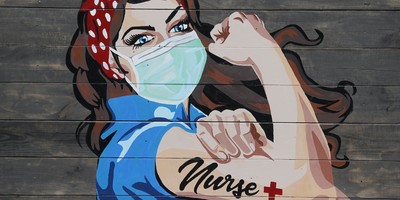Be honest. How many times in the past month have you Googled "Ebola"?
Who can blame you? The media is doing no less than hyperventilating at any sign of a person with a temperature that breaks 100 degrees. No matter that the average American has a better chance of being crushed by a vending machine than contracting Ebola virus.
But the Ebola panic is instructive. We are an anxious nation of pop doc consumers who routinely allow ourselves to be terrified by our Facebook news feeds while real scientists try (often futilely) to shout over the din and remind us of just how comparatively small any actual risk might be.
Our cultural susceptibility to junk science perpetrated by TV doctors like Dr. Oz in decorative scrubs has allowed a multitude of myths about our health and safety to take root-and about things far less potentially harmful than Ebola.
For example, genetically modified foods have never killed anyone-they've never even made anyone sick. Research from major scientific and health bodies from the U.S. Environmental Protection Agency (EPA) to the World Health Organization backs that up. But if you're a regular viewer of the Dr. Oz program, you might think that eating a genetically modified apple was as risky as French kissing a monkey with Ebola.
On a recent episode, Dr. Oz, aka "America's Doctor," claimed that GMOs are linked to Alzheimer's, Parkinson's, thyroid issues, and even weight gain-pretty scary allegations. But to explain the science behind these claims, Dr. Oz didn't host a scientist or a doctor who specializes in biology; he featured an activist from Moms Across America to talk about her claim that an organic diet eliminated her son's autism symptoms.
Recommended
Hosting non-experts to give health advice based on personal anecdotes on a show hosted by a medical doctor is wildly irresponsible. There's no evidence an organic diet can cure autism, and claiming that it can gives false hope to the many parents watching the show who have children with autism and are desperate for a cure.
Or, to take another issue popular with the I-have-an-hour-of-airtime-to-
For instance, the U.S. Food and Drug Administration (FDA) states "that the weight of the current research and evidence support the safety of BPA for use in food containers or packaging." The EPA, European Food Safety Authority, and other regulatory bodies agree that current levels of BPA exposure do not pose a health risk to humans.
But you won't hear Dr. Oz talking about the preponderance of scientific evidence showing a much maligned chemical is safe, not when he could be spending his time touting green coffee bean extract as the next fat-melting miracle (another bogus claim). Unfortunately, many Americans are perfectly happy to believe the hype.
Scary headlines warning about how an everyday product or food is slowly killing you may earn more shares on social media, but they're not helping the public properly understand their risk of actual harm. Which, in the face of a real diseases such as Ebola, weakens our collective ability to respond in ways that are measured and scientific.
Because, at this point, panicking is all we really know how to do.

























Join the conversation as a VIP Member